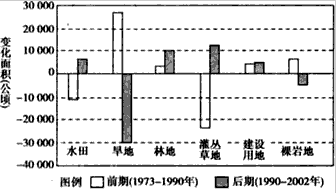现代生物进化理论的基础是( )
A.自然选择学说
B.中性学说
C.自然发生说
D.用进废退学说
A、达尔文把在生存斗争中,适者生存、不适者被淘汰的过程叫做自然选择.自然选择过程是一个长期的、缓慢的、连续的过程.由于生存斗争不断地进行,因而自然选择也是不断地进行,通过一代代的生存环境的选择作用,物种变异被定向地向着一个方向积累,于是性状逐渐和原来的祖先不同了,这样,新的物种就形成了.由于生物所在的环境是多种多样的,因此,生物适应环境的方式也是多种多样的,所以,经过自然选择也就形成了生物界的多样性,因此,现代生物进化理论的基础是自然选择说,符合题意.
B、中性学说由日本遗传学家木村资生于1968年提出一种学说,认为由突变产生的等位基因对于物种生存既无利也无害,这些突变在自然选择上是中性的,因此,在分子水平进化中自然选择几乎不起作用,不符合题意.
C、自然发生说认为不洁的衣物会滋生蚤虱,污秽的死水会自生蚊,肮脏的垃圾会自生虫蚁,粪便和腐臭的尸体会自生蝇蛆.总之,生物可以从他们所在的物质元素中自然发生,而没有上代,不符合题意.
D、用进废退学说是法国博物学家拉马克最早提出来的生物进化学说,这个学说的中心论点是:环境变化是物种变化的原因.环境变化了使得生活在这个环境的生物,有的器官由于经常使用而发达,有的器官则由于不用而退化.这些变化了的性状能够遗传下去,也就是说,获得性能够遗传,不符合题意.
故选:A

